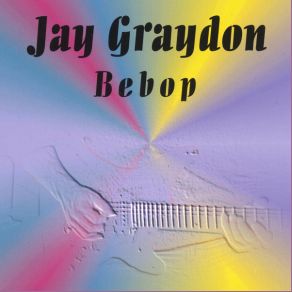Bebop
Download links and information about Bebop by Jay Graydon. This album was released in 2001 and it belongs to Jazz genres. It contains 10 tracks with total duration of 45:49 minutes.

|
|
|---|---|
| Artist: | Jay Graydon |
| Release date: | 2001 |
| Genre: | Jazz |
| Tracks: | 10 |
| Duration: | 45:49 |
| Buy it NOW at: | |
| Buy on iTunes $9.90 | |
Tracks
[Edit]| No. | Title | Length |
|---|---|---|
| 1. | Joe Graydon Tv Show 1951 | 0:18 |
| 2. | Oh Yes, There Will | 5:19 |
| 3. | Blow Man | 6:29 |
| 4. | 4.2 | 7:11 |
| 5. | Go 'way Moon | 4:24 |
| 6. | Tubs | 6:02 |
| 7. | C Bop | 4:34 |
| 8. | My Hot Girth | 6:18 |
| 9. | G Wizz | 2:48 |
| 10. | Star Spangled Banner | 2:26 |
Details
[Edit]The Grammy-winning multiple talents of Jay Graydon are readily apparent on this collection of original bebop compositions. Bebop is a scintillating festival of musicianship, solo improvisations, advanced harmonic changes, syncopation, and ultimately, patriotism. Ten tracks, including 19 seconds from "Joe Graydon's TV show of 1951," on which a two-year-old Jay Graydon tells his father that he likes bebop, comprise the program. Ironically, it was 49 years later that Graydon finally got around to recording such a project. Bebop was recorded on a digital recorder and offers a frequency range and natural dynamics unlike other electronic products. These qualities afford the bebop style, with its various frequency responses, the drumming and ride cymbal playing of Dave Weckl, and other musical delights from saxophonist Brandon Fields, bassist Dave Carpenter, and Bill Cantos on piano to transfer another level of listening pleasure to their audience. This is especially noticeable on "Blow Man" during Cantos' piano solo improvisation and the melodic and harmonic statements emanating from Brandon Fields' saxophone voice. Despite this being an acoustic project, Jay Graydon is playing electric guitar, but delves into his mastery of solo improvisation that is based on advanced harmonic changes, and captures the essence of bebop. Among the very entertaining tracks are "Go Way Moon," with Graydon's superior tuning and picking, and the bebop rendition of "The Star Spangled Banner." Graydon's rendition of America's national anthem couldn't have been programmed at a better moment in music history, since the record was released just prior to one of the most devastating attacks in 21st century America. He offers a similar brand of patriotism in many of the same ways that Jimi Hendrix did with his rock version of the America's anthem at Woodstock during the Vietnam War era. Ironically the jazz style was just getting to its feet in the '40s during which time America had just entered World War II. This is a CD of many ironies, but an excellent one nonetheless. It not only brings Jay Graydon to the forefront of jazz in a new digital audio medium, but is the culmination of a childhood idea that has come to fruition in its own good time. Bebop is a true departure from Graydon's many pop hits — including Airplay with David Foster and the fun-in-the-sun surf album Rake and the Surftones — but nonetheless, it should garner new fans and retain devoted ones who have shown appreciation and enthusiasm for Jay Graydon's musical visions.